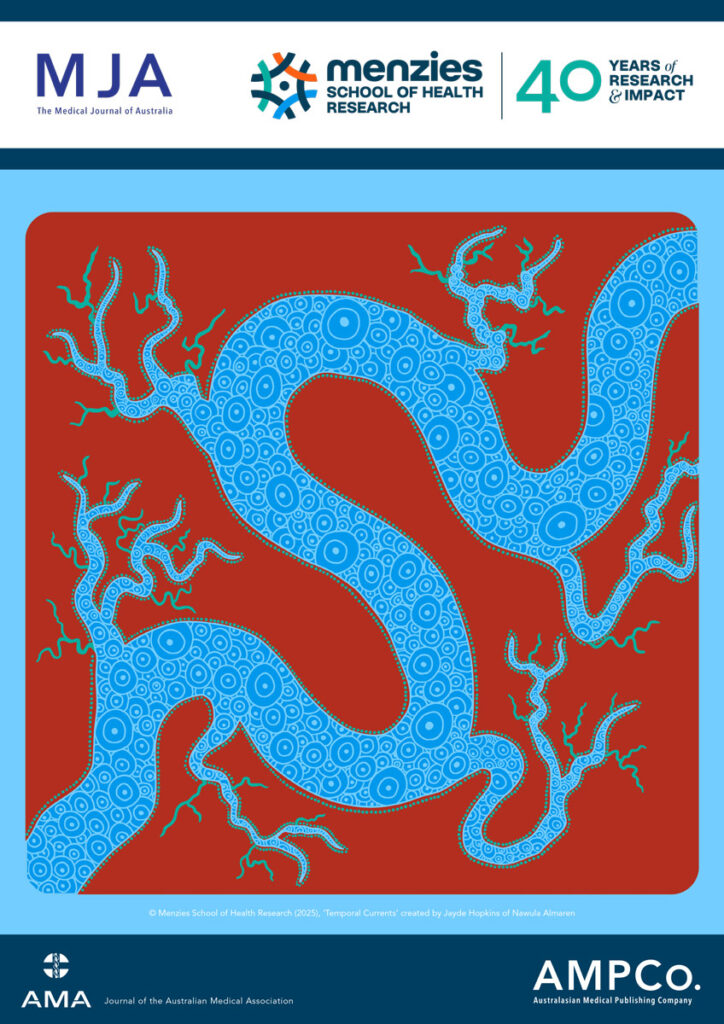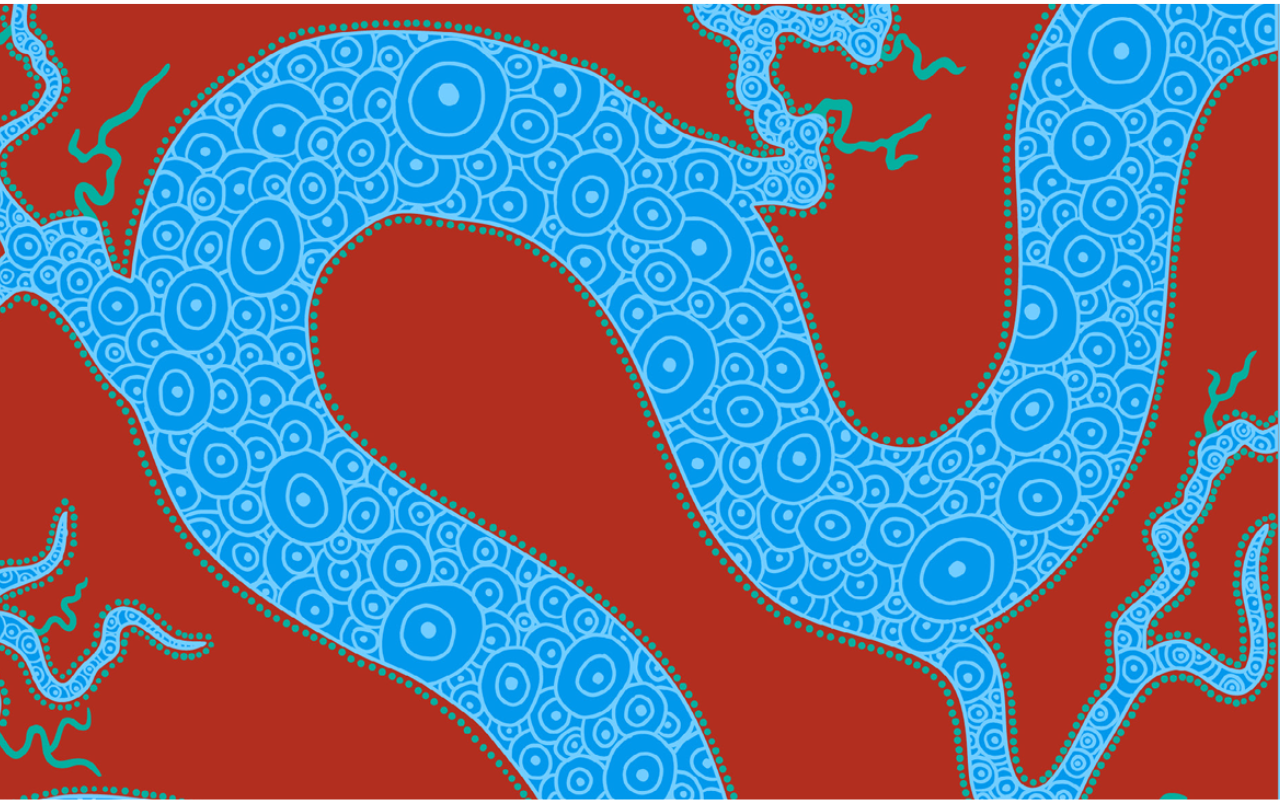As Menzies School of Health Research (Menzies) marks its 40th anniversary in 2025, the release of the Menzies Collection in the Medical Journal of Australia provides a timely reflection on four decades of impactful health research across northern Australia and the Asia–Pacific, particularly in Aboriginal and Torres Strait Islander health.
The journey of Menzies has been one of continual learning, innovation and strong partnership with communities. For Professor Anna Ralph, Deputy Director (Research), the anniversary is both a moment of reflection and a springboard for the future.
“It’s incredible to look back at how far we’ve come. Menzies has spent four decades making a real difference in health outcomes for Indigenous Australians and communities across the Asia–Pacific. This milestone is not just about what we’ve achieved, but also about the exciting future ahead — especially as we continue to focus on community-centred research and driving positive change through innovation and collaboration.”
For Dr Leisa McCarthy, Deputy Director (First Nations Engagement and Research Strategy), Menzies’ history is deeply personal. Her 25-year connection with the organisation began through her work in the Cooperative Research Centre for Aboriginal and Tropical Health and spans several phases of research reform.
“I’ve been engaged in various ways with Menzies for 25 years. My initial involvement through an Aboriginal community-controlled health service partner was part of groundbreaking efforts to create equal partnerships in research. That foundation of equity and mutual respect continues to evolve and is reflected in Menzies’ current strategic priorities.”

Legacy, responsibility and the path forward
Menzies’ long history in Indigenous health research is both a strength and a responsibility. As Professor Ralph notes, the organisation’s deep roots have enabled enduring relationships and cultural insights that are invaluable to conducting ethical and impactful research. Yet, this legacy also requires careful stewardship.
“We must continue to reflect, evolve and innovate. A long history can create high expectations and cultural load, especially for Indigenous staff. As a leader in the field, we are held to a high standard and must always demonstrate genuine partnership, accountability, and a strong commitment to community benefit.”
This commitment includes working to build culturally safe environments — both within the institution and across the health system. For Dr McCarthy, one of the challenges is ensuring the internal systems and supports grow in step with Menzies’ expansion.
“Menzies has grown rapidly, and this has created an opportunity to step back and assess where focused effort is needed to ensure a resourced and supported culturally safe work environment. A systems-based approach, guided by a cultural framework, is key to ensuring this.”
Cultural safety in practice
One area of profound progress is the collaboration between Menzies, NT Health, and the NT Aboriginal Interpreter Service to strengthen cultural safety in clinical settings.
“Our research shows that small changes — like using plain English and building rapport — can make a real difference,” says Professor Ralph. “But broader institutional reforms are essential. Ensuring that Aboriginal people feel welcomed, respected, and safe is vital for equity in care.”
Menzies’ research actively engages patients to gather feedback and ensure health services learn from their lived experience. Aboriginal staff and interpreters play a key role in this work, helping shape more responsive, respectful health care encounters.
A shift in research practice
Reflecting on how Indigenous health research has evolved over 40 years, Professor Ralph points to a shift from extractive models to community-led approaches.
This shift has seen Menzies embrace co-design, Aboriginal governance, and data sovereignty, underlining its role not just as a research generator, but as a partner in self-determined health outcomes.
Over the past 40 years, Menzies has made significant contributions to global health, as illustrated by the article from its Timor-Leste office in this collection. The shift towards decolonising research practices in global health has paralleled the evolution in Indigenous health research. Menzies’ shared values and approaches across both international and local health programs have fostered opportunities for mutual learning and growth.
In the 2002 paper by Professor Alan Cass and colleagues, “Sharing the true stories: improving communication between Aboriginal patients and healthcare workers,” the significant realities of miscommunication in renal care are discussed.
Drawing on interviews with Yolngu patients and non-Indigenous staff, the study revealed how clinical conversations often collapsed under cultural and linguistic misunderstanding.
“This research highlighted the true degree of miscommunication between patients and practitioners. It suggested that previous studies probably understated the problem. We know more than 20 years later that this remains a very significant issue, and Menzies continues an active program in this space,” Professor Ralph said.
The role of journals and Indigenous-led platforms
Menzies’ longstanding relationship with the Medical Journal of Australia has helped bring its work to national attention, especially in its earlier years. As Professor Ralph explains, the emergence of Indigenous-led journals — such as the Lowitja Journal — marks a new era.
“These platforms prioritise community-led, culturally grounded research. They give voice to Aboriginal and Torres Strait Islander researchers and help ensure that research is both scientifically rigorous and culturally accountable.”
The road ahead
Looking to the future, Dr McCarthy sees a growing need for evidence to actively shape health policy, systems and practice.
“Research has a key role in informing the Closing the Gap strategy — not just to guide change, but to monitor and evaluate its impact. Our responsibility is to ensure the work we do translates into real-world outcomes, and that it’s done in deep partnership with community.”
The Menzies Collection celebrates not only the body of work produced over four decades, but also the transformation of research practice in Australia — towards equity, accountability and cultural integrity. As Menzies looks to the next 40 years, the commitment remains clear: to walk alongside communities, elevate leadership of Indigenous and global partners, and drive research that truly makes a difference.
Subscribe to the free InSight+ weekly newsletter here. It is available to all readers, not just registered medical practitioners.

 more_vert
more_vert